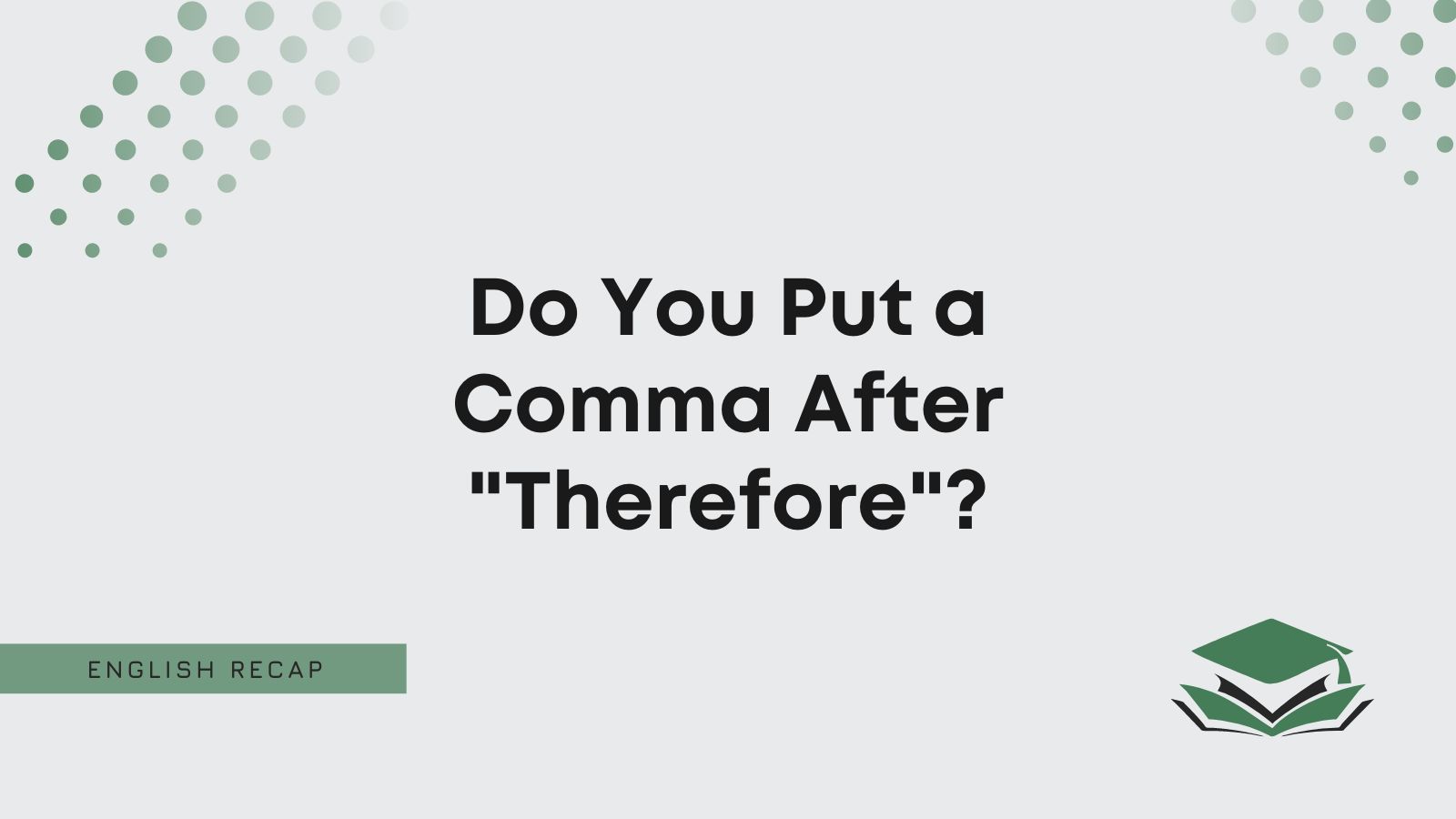Rule 1: Use a comma after the word “therefore” when it starts a sentence and modifies the whole sentence.
- Correct: Therefore, the results were not as good as we had hoped.
- Incorrect: Therefore the results were not as good as we had hoped.
Rule 2: When “therefore” appears in the middle of a sentence, use a comma after it and a semicolon before it.
- Correct: They didn’t study at all; therefore, they all failed the math exam.
- Incorrect: They didn’t study at all, therefore, they all failed the math exam.
- Incorrect: They didn’t study at all therefore they all failed the math exam.
Rule 3: You can use a comma before and after “therefore” when you use it to interrupt a clause, and you want the interruption to be strong.
- Correct: He arrived late for the interview, so he was, therefore, told not to come back.
- Correct: He arrived late for the interview, so he was therefore told not to come back.
Rule 4: You do not need to use a comma after “therefore” when it appears mid-sentence and the interruption is weak.
- Correct: Maria arrived late and therefore had to stand because there were no seats.
- Correct: Maria arrived late and, therefore, had to stand because there were no seats.
Do you want to discover more about how you can use commas correctly with the term “therefore?” In the rest of the article, we’ll explain the rules in more detail.
When to Use a Comma After “Therefore”
To find out when to put a comma after “therefore,” you should see Rules 1, 2, and 3.
Rule 1: Use a comma after “therefore” when it starts as a sentence and refers to all the words in the sentence.
In this role, “therefore” often introduces the result or consequence of the previous sentence.
- We have no money. Therefore, we need to take out a loan.
- Their recruitment policy is excellent. Therefore, they have the best staff.
Rule 2: Put a comma after “therefore” when it separates two independent clauses.
In these cases, you must also put a semicolon before “therefore” rather than a comma.
- He has never left the US before; therefore, he hasn’t seen other countries first-hand.
- We went out for a pizza last night; therefore, I want to eat at home tonight.
Rule 3: You can put a comma before and after “therefore” when you use it to interrupt a clause rather than connect them.
In these cases, the comma is often optional, and you decide by judging how severe or dramatic you want the interruption to be.
- He has been working nights and is, therefore, tired every afternoon.
- His comments were out of character and rude. His position is, therefore, untenable.
When to Avoid a Comma With “Therefore”
This section describes when it is not necessary to put a comma with the word “therefore.”
Rule 4: You shouldn’t use a comma with “therefore” when you use it to interrupt a clause and the interruption is weak or minor.
In these cases, you can also choose to add a comma to add more emphasis. However, you can also omit it to improve the flow of the sentence.
- She therefore gave him a beautiful gift for his birthday.
- She hoped they could therefore travel to the coast, considering it was the holidays.
When to Use a Comma Before “Therefore”
If you want to find out when to put a comma before “therefore,” please see Rule 3.
Rule 3: Use a comma before and after “therefore” when you use “therefore” to interrupt a clause as a non-defining element.
- She, therefore, told her boss that she was quitting.
- He went to the wrong address and then got lost. He was, therefore, quite angry when he got home.
Conclusion
Put a comma after “therefore” and a semicolon before when it connects two independent clauses. Put a comma before and after “therefore” when it is a non-essential word mid-sentence. Furthermore, you can also omit the comma when it is non-defining if the interruption is weak.

